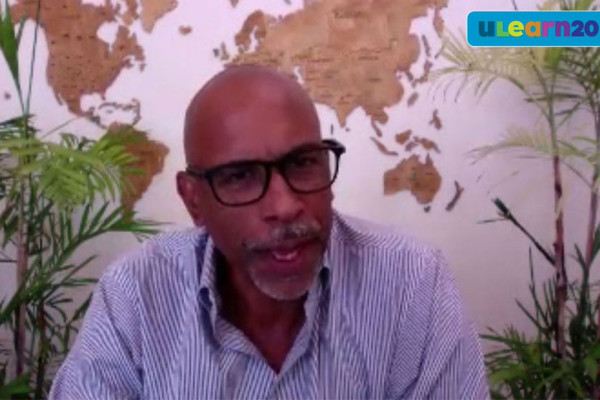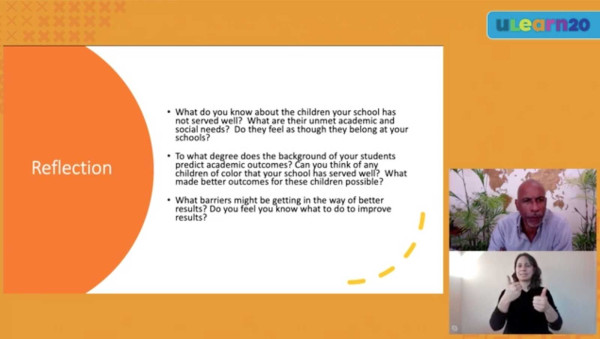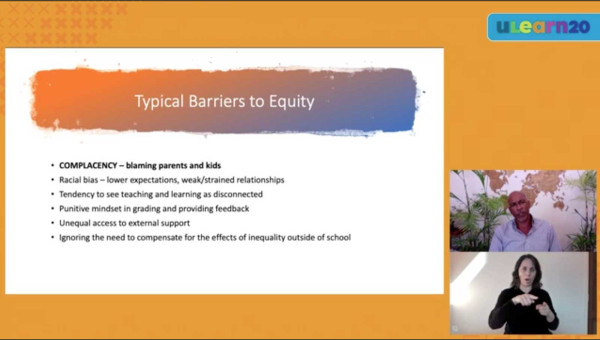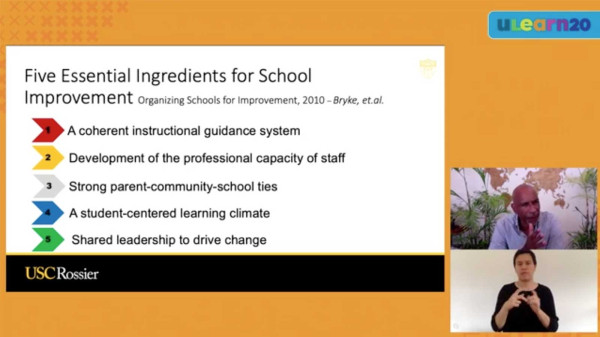Good teaching is like good cooking!
How are schools influenced?
With a background as a sociologist whose scholarship and research focuses on the ways in which schools are influenced by social and economic conditions as well as by demographic trends in local, regional and global contexts, Pedro Noguera was an inspired choice of keynote to open day two of the uLearn20 (virtual) conference. He didn’t disappoint!

Beaming into us from his base in California, Pedro captured the essence of what had been emerging through the conference to that point with his opening challenge to the participants, asking, “How can we make our schools and early learning settings more responsive to learners?” A simple question, but one for which there is no simple answer. Instead, it invites a deep engagement with a wide range of issues, and the exposure of many of the assumptions that underpin how we currently work in schools and as a system.

In his presentation Equity, Empowerment and Deeper Learning Pedro traversed a number of the key issues facing educators today. His emphasis was always on what is best for learners, highlighting that we cannot disconnect education from the cultural context and influences on our learners. Excellence, according to Pedro, should be achieved through equity. We must start by affirming the language and identity of the individual learner, and address any interpersonal or institutional bias as it is exposed. We must learn to move past the barriers to equity that we face on an almost daily basis – complacency, racial bias and a punitive mindset – and seek to embrace new ways of working, being and relating to others.

Historically, education has been used as a tool to assimilate learners into a common culture to prepare them for taking their place in the industrialised workplace. Our current model and approaches, according to Pedro, have been focused on control and compliance, and logistical and technical changes have dominated the conversations about how learning communities should operate. This was highlighted in the responses from schools, early learning services and systems to the recent COVID-19 lockdowns.

Pedro’s message was clear. To create the educational settings we need we must shift the paradigm. It won’t happen simply by introducing new programmes or changing policies. We need to start at the very core of our beliefs about what is important and what matters for our learners and their futures. We’ll know we’re there when our attention is on developing talent in all of our learners, rather than trapped in deficit thinking that leads to remedial actions.
So what was the call to action I heard from Pedro? Simply this – we need to re-capture the ‘delight’ in seeing all of our learners succeed and flourish. This won’t happen if we continue to focus only on trying to ‘fix’ problems. Instead, we must reorient our efforts to recognise and respond to the needs of each learner, acknowledging their culture, language and context in the programmes we design.
A final comment from Pedro sums it up well for me… “Good teaching is like good cooking. They always come back wanting more!” Imagine our educational settings and system where we could genuinely say that is the case?
Explore more content
Explore our wide range of education related podcasts and blogs, ranging from experts discussing Kaupapa Māori, Cultural capability and te reo Māori, Leadership, Pacific viewpoints, Digital and innovation, Inclusive learning and more.